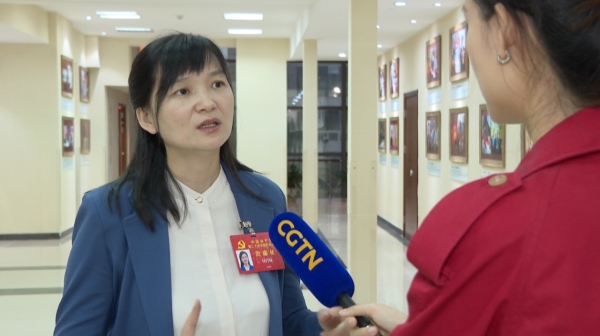| Location: Home > News > Events |
| CGTN:Delegates Encouraged by All-round Sci-tech Roadmap in CPC National Congress Report |
|
Wang Xiujie and Fu Qiaomei, both from the Chinese Academy of Sciences (CAS), are encouraged by the report to the 20th National Congress of the Communist Party of China (CPC), as they have actively implemented the requirements of Xi Jinping and closely linked research with the needs of the country and the people. To solve the bottleneck problem of a shortage of transplanted organs, Wang Xiujie, a professor at the Institute of Genetics and Developmental Biology at the CAS, developed a new cell bioprinting method with her team. "It can organically combine printed cells with the complex blood vessel network, allowing cells to survive for a long time. This provides a new strategy for vitro organ manufacturing," Wang said. "We have actively implemented the requirements of Xi Jinping and closely linked our research with the needs of the country and the people."
Fu Qiaomei, a professor from the Institute of Vertebrate Paleontology and Paleoanthropology at the Chinese Academy of Sciences during an interview. /CGTN With the Ancient DNA (aDNA) technology, Professor Fu Qiaomei from the Institute of Vertebrate Paleontology and Paleoanthropology at the CAS found traces of prehistoric humans in a pinch of bone meal, a handful of soil and human remains. She uncovered the genetic characteristics of populations and the aspects of human evolution from tiny fragments of DNA. "The influence of innovation is not necessarily measured by our current values. The winner of this year's Nobel Prize in physiology and medicine, for example, is a pioneer in our field, paleogenetics. This is a broad recognition of what's going on in this field," Fu said. "In the report, Xi Jinping called on us to 'gather strength to carry out original and leading scientific and technological breakthroughs,' which emphasizes the importance of originality and its global influence." "We are very encouraged by the all-round layout of scientific and technological innovation mentioned in the report." |
